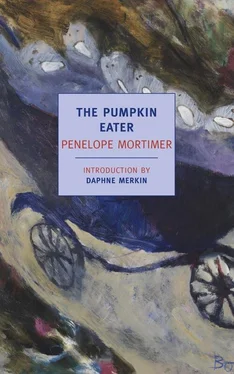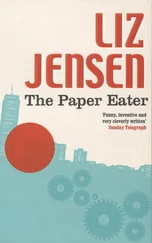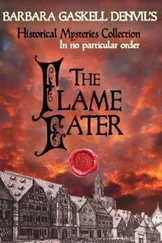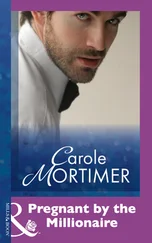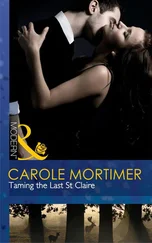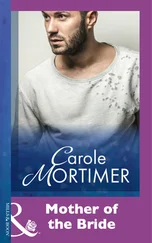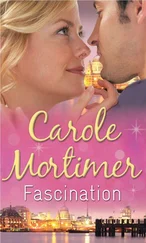“Handsome is as handsome does,” my mother said. “You shouldn’t say such things in front of the child, George. She’ll get swollen headed.”
I did, a little. The next week my mother took me to London for the day and bought me an evening dress at Debenhams, yellow net with a yellow taffeta underskirt and a clutch of hard yellow rosebuds on the bodice. I was stupid enough to long for the clergyman’s son to see me in it, though if he had, he would have run a mile. On Saturday night my father took me to the Masonic Ball.
This, the peak of the town’s New Year celebrations, was held in the largest hotel, one of remarkable dinginess and squalor. That night, with streamers and balloons, changing spotlights, and a band dressed in satin Cossack shirts, it was transformed. I danced with my father, who did a surprisingly elegant slow foxtrot, and with the bank manager and the manager of Boots and a reporter who was not a Mason but had to write about the Ball for the local paper. I was sipping fruit cup, a little out of breath, when Mr. Simpkin asked me for the pleasure.
He was a small, square man, Mr. Simpkin, with too much face for the size of his features: his little sparking eyes and snub nose and small, fat mouth sat very close together in a great expanse of cheek. As though to fill up his face he wore a thin, spiky moustache, gingerish. His hair, thinning, was fixed across the top of his head in separate strands. He held me quite differently from the others, clasping my hand close and gently pressing his hard, round stomach against me. He was a beautiful dancer, and his patent leather feet seemed to draw mine after them like magnets.
“Enjoying yourself?” he asked.
“Oh yes. Yes, I am.”
“I’m an old friend of your father’s, y’know. I saw you at the Rotary do last week. I suppose they all tell you you look like Hedy Lamarr?”
“No. No, no one does.” Curious, I flapped my eyelashes a little. “Why? Do I?”
“You do indeed.” He held me a little closer. “How old are you, anyway?”
“Sixteen,” I lied.
“Still at school, I suppose?” He murmured these questions, hardly opening his mouth.
“Yes. But I’m leaving soon. I’ve had enough of school.” This was true, but I had never even thought it before. The music stopped and we clapped, but he did not lead me away.
“Let’s have the next,” he said, twinkling. “Your father knows you’re quite safe with me.”
It seemed that Mr. Simpkin was the manager of a nearby paper works.
“You must come along sometime,” he said. “I’ll show you around. There’s a lot to interest a bright girl like you. How about it, one afternoon? Then we could have a spot of … tea, and I’ll deliver you back safe and sound.”
“It’d be simply lovely.”
“That’s a date, then. Keep it to ourselves, shall we? You’d better give me a ring.”
It was almost an assignation. He must have felt my delight because he cooled off a little, and after that dance took me to meet his wife. She was sitting with the other wives on a sofa in a kind of crypt just off the ballroom. Mr. Simpkin introduced me as “George’s little girl — you remember?” and she talked to me kindly. All I saw of her was a mottled turkey neck hung with pearls and rough, working hands which she had tried to cover with talcum powder.
After this, the holidays settled down, more boring, more empty than they had ever been before. I waited for the clergyman’s son to call, but he didn’t come. I loved him more, if anything, but my love now grew anxious, sharp, even resentful. I even told myself that I hated him, which was an elaboration of love that I couldn’t understand and which filled me with misery. Twice I met him in the town, but the first time he stumbled into the fishmonger’s and the second time he ran as though all the hounds of hell were after him across the churchyard. Still I couldn’t believe that he didn’t want to see me. I defied the women’s magazines and rang him up, but his mother answered and said that he was working and she was very, very reluctant to disturb him since everything depended on his passing the Higher Certificate since without the Higher Certificate he would be unable to go to Oxford, which would be a great deprivation since his father was quite set on him going to St. John’s which was his father’s old college and had quite a remarkably pretty garden, I must go and see it if ever I went to Oxford, but in the meanwhile … So I wrote him smudged letters, and tore them up. My mother said I had had too much excitement, and for some reason became angry with me. The days at home were stiff and hostile and I spent hours in my hot bedroom, wishing I could die.
Two days before the end of the holidays my mother went to a meeting of the Townswomen’s Guild, leaving me alone in the house. I walked from room to room looking for something to do. My body ached. I wanted to run, leap, stretch, exhaust myself, but somehow I was too tired. I made faces at myself in the hall mirror. Suddenly, without any warning, the afternoon became intolerable. It was something I couldn’t live through, an impossibility. Wondering at myself, but with a curious sense of obedience, I telephoned Mr. Simpkin at the paper works.
“I must see you,” I said. “Immediately.”
“Well, well. My goodness. And how are you, my dear?”
“I want to see you straightaway.”
“Is something … the matter?”
“Shall I come to the works?”
“No, no. No, don’t do that.” There was a short pause. “You’re at home, I take it?”
“Yes, but they’re all out.”
“Well… I don’t think I should come to the house.”
“All right,” I said. “I’ll meet you at the end of the drive. We can go up Sam’s lane.”
Sam’s lane was the nearest childhood walk. I don’t think I imagined Mr. Simpkin and me trudging down it for the good of our health. I don’t think I imagined anything. Sam’s lane was the obvious place to go, since it was out of the town, which was ugly, and not right in the country, which was too far. I went upstairs and put on a jersey dress, cut on the bias, which I thought suited me, and my school mackintosh. Something told me that this would be more appropriate than my new, well-hanging overcoat. Then, giving Mr. Simpkin exactly time to tell his staff that he was going out for a while, to put on his coat and hat and drive from the paper works, I walked down to the gate.
Not, as my mother thought afterwards, to my doom — Mr. Simpkin merely kissed me, his moustache grazing my gums like a toothbrush, and fumbled a little with the unyielding navy gaberdine. Obviously he thought that this was what I wanted, and looking back on it I could not blame him if he had raped me. But rape, thank God, is not for the Mr. Simpkinses of this world. They are level-headed men, sane men, men who know what’s what. A little flirtation with a willing partner, even if it’s a schoolgirl who telephones you at three in the afternoon, is just as far as a reasonable man like Mr. Simpkin cares to go on his home ground. On a business trip, of course, it’s different — well, a man’s got to have a bit of sport, a good story to take back to the boys, what the wife doesn’t see the wife doesn’t grieve over and there’s nothing nasty about it, you understand, nothing what you might call sexual. Much of this, in that ten minutes up Sam’s lane, I began to understand.
“I think you’d better take me home now,” I said.
“Oh, come on, duckie.” He was panting heavily and his moustache was wet. “Give me another kiss.”
“If you don’t take me home, I shall walk,” I said.
“What’s the matter? You said you wanted to see me!”
“Well. I’ve seen you. Please will you take me home?”
Читать дальше
